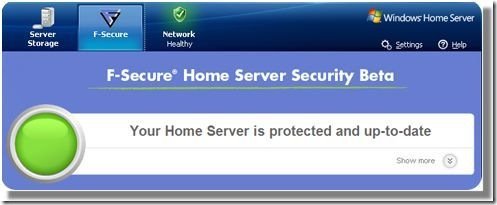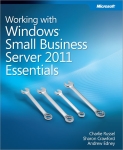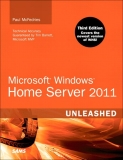F-Secure Home Server Security Beta
A beta of a security suite specifically for Windows Home Server users is available from F-Secure. Home Server Security beta protects Windows Home Server against all kinds of malicious content, such as viruses, worms, Trojans, spyware and riskware.

Installation, configuration and management is performed through the Windows Home Server Console and notifications are sent through the WHS Connector. As a benefit F-Secure would like to offer the following to beta participants:
- An early preview of upcoming features and the ability to provide feedback on how to improve the features.
- A free twelve-month F-Secure Home Server Security subscription for users who send us invaluable feedback.
- Power of influence: you can be part of making the best-of-breed security solutions.
F-Secure Home Server Security provides real-time scanning, whenever files are accessed on Windows Home Server, they are automatically scanned for viruses and spyware and with manual and scheduled scanning also being supported, the whole system or selected folder(s) can be checked by user request or on a defined schedule.
Infected files, spyware and other potentially unsafe files can be placed in quarantine where they can be reviewed, restored from and deleted and virus and spyware definition databases as well as software updates are received and applied automatically via automatic updates.
Easy to install and easy to use, quick setup and minimum configuration enables a simple deployment.
Release notes in RTF format are available for download from here and those interested in signing up for the beta program can do so from here. For instructions on how to install F-Secure Home Server Security, see the Quick Installation Guide and the F-Secure Home Server Security forum.
Share this WHS Article with Others:




Who in their right mind, would want to use a beta security solution in their RTM/OEM Windows Home Server product?
Is every third party add-in or solution for WHS going to be unproven software?
How does that build confidence when your customers must contend with all the pains, hassles and issues of using buggy code?
All this beta crap, should have been done during the beta testing of more than 100,000 since last year around April 2007.
Is it any wonder why so many say, WHS still isn’t ready for the retail markets as a final finished product!
How does software gain the confidence of customers without a proper beta test cycle? Users who install beta software tend to understand the risks involved, and the software product gains significantly from beta tester feedback. Anyone who thinks a software product can be shipped out the door bug-free without having gone through the kind of real-world usage shakedown that a beta test offers has no real concept of real-world software development lifecycles.
If WHS isn’t ready for retail markets as a finished product, than by that logic no software is. No one piece of software can fill every absolute want and need of every absolute customer, particularly on its first release, nor can it be predicted what future wants and needs every absolute customer will have. If software companies all waited around continually adding features to a product that are wanted and needed by their potential customers before releasing it, the product would never be released.
Microsoft already had it’s own high quality internal bar to establish it’s own software quality.
Then Microsoft chose to release WHS to no less than 100,000 beta testers for more than half a year.
What is amazing is how someone can talk about confidence of customers, when everyone sees the lost of integrity of Microsoft’s own products.
And nobody thinks shipping a product such as WHS should be okay with a proven design flaw with data destroying corruption, as reported during the beta testing phase, or that’s it’s acceptable when it effects your customers files and data with annihilation, devastation and obliteration!
Beta testing is not the “final release” and may yet contain code that could be harmful to your PC. We only tried it on non-critical test machines, and we suggest you do the same.
The problem is, Windows Home Server isn’t being offered as BETA, it’s been “SOLD” as final complete and functioning RTM and OEM product.
Even Microsoft’s own fanboi club knows it’s competition doesn’t ship destructive data corruption design flaws and
works behind the scenes to orchestrate “independent” praise of Microsoft’s products in regards to any cost.
Imagine the U.S. government using WHS in the military? Want our troops to wait for June 2008 relief?
Imagine your medical doctor telling you, NO relief until June 2008!
Then image your local supermarket telling you, you can live without food until June 2008.
And of course, we all should be glad to hear from our political politicans that all this is acceptable to expect from a multi-billion dollar corporation that couldn’t test it’s own software products…
There is no creditable confidence to think shipping data destroying design flaws are acceptable for your customer experience…
WHS Drive Extender is a new technology that alters the behaviour of files on the filesystem on a relatively low level. While I’m disappointed with this bug (but would like to note that I have not been affected by it), being a software developer I can imagine why it was so difficult to track down, and I can understand why Microsoft would want to thoroughly test it before releasing it to customers. The issue itself is complex, and without proper testing Microsoft could risk greater data corruption issues.
Now to claim that competitors have never shipped a bug that can destroy data is to be completely ignorant of the development of every major file system in existence, and of every virus scanner, disk utility, and other software that uses low-level file access in their early days. Data corruption bugs are serious, but not limited to Microsoft software.
Beyond that, your comparative scenarios are laughable. Why would the US Military want to run a product that’s designed for home use by consumers? How does using Windows Home Server compare in any way to health care, or food availability, or politicians?